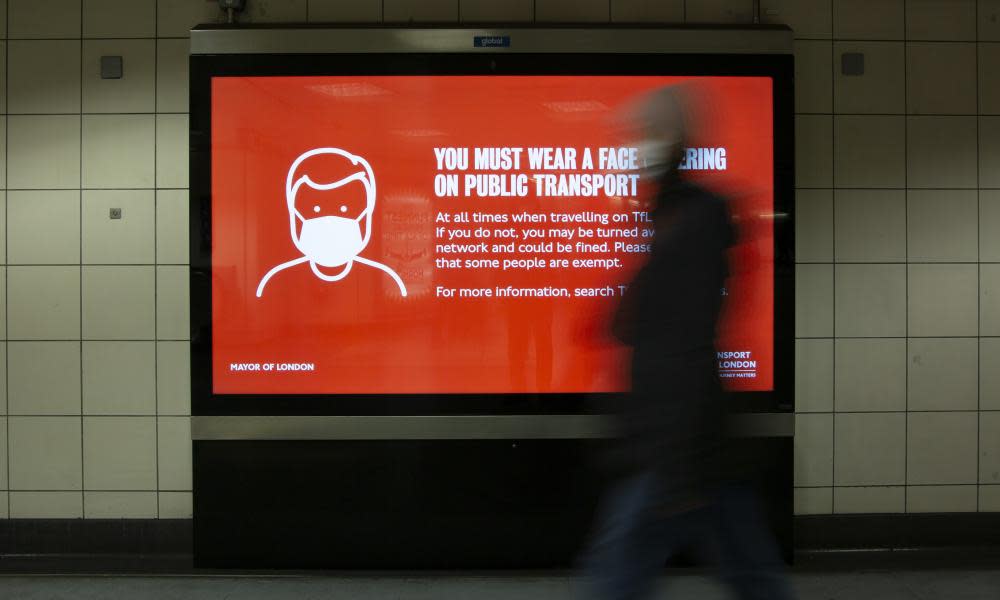Expect another Omicron wave in early summer, Sage says

Scientists advising the government have predicted there will be a fresh wave of Omicron cases in the early summer as people resume social activities and immunity wanes.
But experts on the Scientific Advisory Group for Emergencies (Sage) said they were increasingly confident that the worst case scenarios for the current wave are very unlikely to occur, with the latest modelling suggesting a peak of fewer than 4,000 hospitalisations each day.
The advice comes as ministers face pressure from some Tory MPs to scrap all so-called plan B restrictions in England when they are next reviewed, on 26 January, with officials stressing more data is needed before any decisions are made.
Things have turned out better than some anticipated due to the lower intrinsic severity of Omicron compared with Delta and because vaccines have held up well against severe illness.
The size and timing of the next peak “cannot be predicted with any certainty”, according to the team at the University of Warwick. Modelling gave projections ranging from fewer than 1,000 admissions each day in the next wave to about 2,000 each day, for the scenario where plan B restrictions remain in place until the end of January and are followed by a gradual return to socialising.
default
However, uncertainty about factors including severity of Omicron, how long people typically take to become infectious, cross-immunity with other variants and how behaviour will change, makes it difficult to predict hospital admissions, the scientists said.
Scientists may have also overestimated the growth advantage of Omicron over Delta, the latest documents suggest, due to Omicron apparently having a shorter generation time (the average time between someone being infected, and that person infecting others). This suggests that the staggering rate at which Omicron cases took off could have been partly due to shorter generation time as well as because the strain is more infectious. Once this is factored in, a lower peak is predicted that is more consistent with current rates of hospitalisation, with 2,423 people admitted on Thursday.
However, at the 7 January meeting, scientists suggested that hospitals could remain under pressure for some time because prevalence in older people is high and growing rapidly, with hospital admissions expected to peak this month.
“It remains likely based on the scenarios that hospital admissions in England will remain high for some time as a result of the very high number of infections and the continued risk of hospitalisation for the elderly and unvaccinated adults in particular,” Sage scientists advised.
The Office for National Statistics (ONS) estimated on Friday that 3,735,000 people – or about 1 in 15 – in England had coronavirus during the week, while the figure for Scotland, Wales and Northern Ireland was about one in 20.
Infection levels appear to have peaked in London, falling from one in 10 at the end of 2021 to one in 15 in the week ending 6 January, but they have risen in all other regions of England except the east. The north-west recorded the highest levels, at one in 10.
However, the ONS indicated there could be a significant under-reporting of cases. The body uses tests taken by a representative sample of 150,000 people to extrapolate likely infection rates and found rates in December up to three times as high as official figures.
The ONS figures add to the difficult decision facing Sajid Javid, the health secretary, who told MPs on Thursday that he wants all restrictions removed as soon as possible.
A number of Tory backbenchers want all plan B restrictions – the limited use of vaccine certificates, mandatory masks in shops and on public transport, and advice to work from home – ended at the 26 January review.
One government source said that while statistics in areas like hospitalisation due to Covid and numbers in intensive care were better than feared, it was still possible some or all of the restrictions could be extended.
“At this point in time it’s too early to say. I think next week will be pretty important in terms of future direction,” they said.
“There are points of optimism in the data. The NHS is still under a lot of pressure and the next couple of weeks are going to be difficult. We’re not out of the woods by any stretch of the imagination, but things have not been as severe as the worst end of some of the possible outcomes.”
Wales has already announced an easing of its tighter restrictions, with the end of limits on outdoor activities from 21 January, meaning mass sports crowds can return.

 Yahoo News
Yahoo News 
